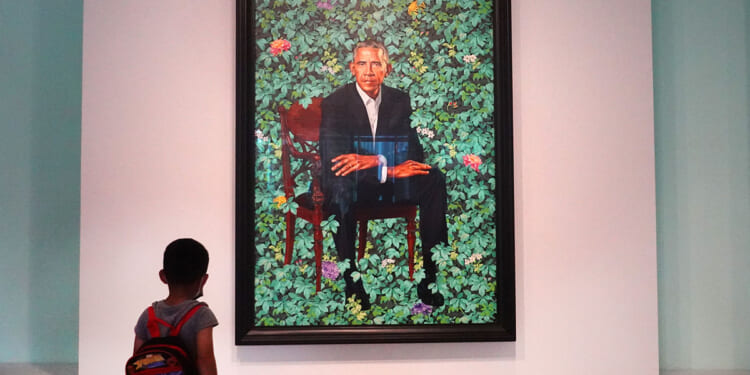Over the last several years, an odd ritual known as a “land acknowledgment” has become the fashionable way to begin academic, arts, and other elite events. Like a woke version of the Pledge of Allegiance, these land acknowledgments involve the public recitation of a prepared script.
But rather than declaring loyalty to the United States, land acknowledgments emphasize the illegitimacy of this country by claiming that the land on which an institution is built rightfully belongs to groups of people who were present before the U.S. was founded.
Land acknowledgments make this general point in a very specific way by declaring that the actual land on which the event is taking place is the home of a certain Native American tribe or set of tribes. Progressive institutions have also placed these statements on their websites, saying that their organization is housed on land that is the rightful property of a preexisting group of people.
Talk is cheap. If the people spouting land acknowledgments actually mean it, they should be willing to transfer ownership.
To ensure that these woke proclamations are not merely symbolic and empty gestures, we have an immodest proposal: Public declarations that a parcel of land is the rightful property of someone else should be considered legally binding offers. Any descendant of the group asserted to be the true owner in a land acknowledgment should be able to demand the deed and have that demand enforced by a court.
For example, the Brown School of Social Work at Washington University in St. Louis states on its website that it “occupies the ancestral, traditional, and contemporary lands of the Osage Nation, Otoe-Missouria, Illinois Confederacy, Quapaw, Ho-Chunk, Miami and many other tribes.” The Missouri school continues by asserting that “sovereignty was never ceded” and that “in offering this land acknowledgment, we affirm and support tribal sovereignty.”
So be it. If Brown officials mean what they say, they should hand over possession of their school’s building and the land on which it stands to the legitimate heirs of those tribal nations.
Similarly, the University of Hawaii at Manoa argues that the entire state, including the university’s land, is “illegally occupied” because “her majesty Queen Lili‘uokalani yielded the Hawaiian Kingdom and these territories under duress and protest to the United States.” If any descendant of Queen Lili‘uokalani appears, they should be able to right this wrong and end the university’s illegal occupation by regaining ownership of the campus.
It’s not just universities. Arts organizations frequently have land acknowledgments. The Art Institute of Chicago declares that it is “located on the traditional unceded homelands of the Council of the Three Fires: the Ojibwe, Odawa, and Potawatomi Nations.” If it is unceded, then it still belongs to them, and they should get it back. We’ll let the Art Institute decide if it wants to first remove its priceless paintings before handing over the building.
We are certain that the last thing that people reciting land acknowledgments would want is to renege on their public offers. That would make them guilty of what Native Americans have been wrongly and hatefully accused of—”Indian giving.” To avoid this hateful language, we suggest that the legislation making land acknowledgments legally binding be called the “No Backsies Law.”
It is important that we improve public dialogue by imposing consequences for empty and thoughtless rhetoric. If people publicly make an offer, they should be expected to follow through.
If we can succeed with the “No Backsies Law,” next we can work on deporting to Canada everyone who swears they’ll move there if their preferred candidate loses. After that, we can reinstate Prohibition for everyone who declares that they’ll never drink again when suffering from a hangover.
Words should have meaning, even for the silly elites who run our universities and arts institutions.
This commentary originally was published by Fox News
Have an opinion about this article? To sound off, please email [email protected], and we’ll consider publishing your edited remarks in our regular “We Hear You” feature. Remember to include the URL or headline of the article plus your name and town and/or state.

